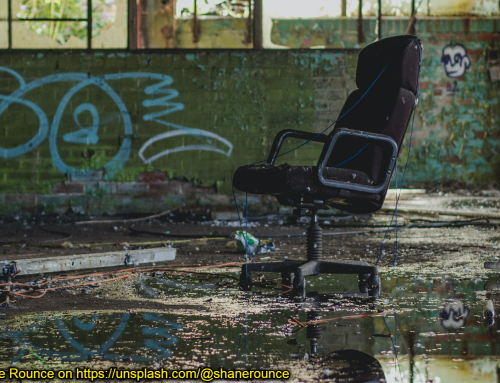Sustainability is the buzzword gaining traction in every aspect of our daily lives and sustainable development is key in aiding the future in extending technology life cycle and energy efficiency.
Technology as we know evolves over time, however the current rate of change is well beyond anything we have ever witnessed, you just have to look to Germany a country heavily reliant on its automotive industry to get a glimpse on how dramatically and quickly industry has had to adapt in recent years to stay ahead of the curve, doing away with the petrol engines of old and replacing them with new low-emission engines and electric motors. Though I don’t believe there would have necessarily been quite the same urgency had it not been for the EUs and Germany’s government intervention putting a stop to there funding of the automotive industry unless it was willing to adapt, and if it did bow its head as it understandably did and follow suit it would be offered a whole load of government incentives. Now no matter where you sit on the subject this EU intervention has in my view been the springboard in not necessarily increasing awareness and importance in sustainable technology within almost all industries, but a catalyst in getting things actioned.
That said there is an area I have personally noticed that has almost gone unnoticed that is growing exponentially, that being embedded computer systems. If you are unsure what one of these are; basically an embedded system is a motherboard consisting of a combination of devices such as memory, processors, transistors, resistors and other components that either form a complete device or as a plugin component to a device such as a computer which can have many rows of embedded systems. Now from what I know and regularly see is that when an embedded system packs-up it’s generally replace with a new system, it’s extremely rare for anyone to replace the individual component that packed-up simply because it may take too long to repair, replacement parts aren’t always readily available, you just have to take a look at the current microchip/semiconductor crisis to see how difficult getting these supplies can be, and it’s quite possible that when the part did pack-up it may have caused damage to the motherboard and or other components on the board, inevitably subject to what caused the thing to stop working. So these systems though likely needn’t be replaced are to avoid any possible complications, and with the direction we are taking in our sustainable technology drive you would have thought this would have been one of the items at the very top of the agenda to do something about, every new vehicle for example is heavily reliant on more embedded systems than their predecessors. In fact most things that we use on a daily basis have an embedded system, even down to our toothbrush.
DON’T LEAVE YOUR IT TO CHANCE! LEAVE IT TO THE PROFESSIONALS!
It is in fact extremely concerning in my field when we look at the direction Cloud and Edge computing has taken, cloud and edge computing hardware runs on single board systems or blade servers as they are otherwise know, these servers are one whole embedded system, when one thing packs up the whole server is replaced, and as crazy as this may be it is in no way near as crazy as what happens when a piece of hardware needs an update, instead of replacing that piece of hardware, as we would with a clients in-house server(s), the cloud and edge industry update there data centers by replacing the entire racking systems, yep you read the right! Just to paint a picture, in 2019 demand for these types of servers grew more than 14% to 3.4 million units, and it won’t be all too long in the grand scheme of things before these 3.4 million systems need replacing, what a complete waste. Subsequently I feel that we could be blindly walking into a technology driven unsustainable catastrophe if a universal modular embedded system approach is not taken, whereby any component from the memory to a tiny transistor can be replaced simply and easily.
At TLP Technology we do our best to save our clients embedded systems and fortunately for us due to the current semiconductor crisis in many instances we have been able to recycle components and repair client systems cheaper and quicker than ordering a new system to replace it, though this is not always possible it is certainly more worthwhile and fulfilling, and it’s inevitably better for the environment. And though we are proud of that fact an awful lot more could be achieved if a robust modular system were introduced.















